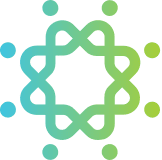Today, Breakthrough Energy’s Catalyst program launched its first Request for Proposals (RFP) to fund the most promising emerging climate technology projects in the U.S. and its territories. Through this RFP, Catalyst will provide project-level financing for projects across four areas that will be critical to reduce emissions in hard-to-decarbonize sectors and solve the climate crisis:
- Green hydrogen
- Direct air capture
- Sustainable aviation fuel
- Long duration energy storage
Catalyst will provide the essential funding needed to accelerate these technologies from lab to market by addressing early deployment funding gaps—a common hurdle faced by many emerging climate technologies we desperately need—and providing a structure to accelerate commercialization.
Learn more about Catalyst funding and how to submit a proposal
Join our informational webinar: If you’re interested in submitting a proposal or learning more about the Catalyst program, join the webinar on December 14th, or watch the recording when it’s available on the website.
In the coming months, Catalyst will issue additional RFPs for projects outside of the U.S.
About Breakthrough Energy Catalyst
Breakthrough Energy Catalyst is a first-of-its-kind model to finance, produce, and buy the new solutions that will underpin a zero-carbon economy. Catalyst brings together the public and private sectors to fund commercial-stage demonstration projects for critical decarbonization technologies. Catalyst will address the early deployment funding gap for these technologies and provide a structure to accelerate their commercialization. Catalyst will start by funding projects across four technologies: direct air capture, green hydrogen, long-duration energy storage, and sustainable aviation fuel.







